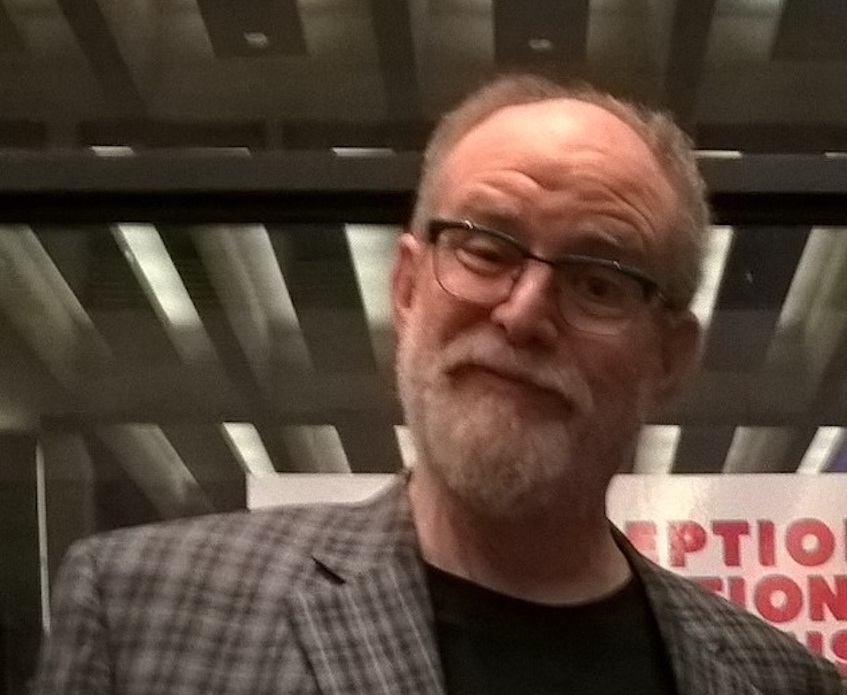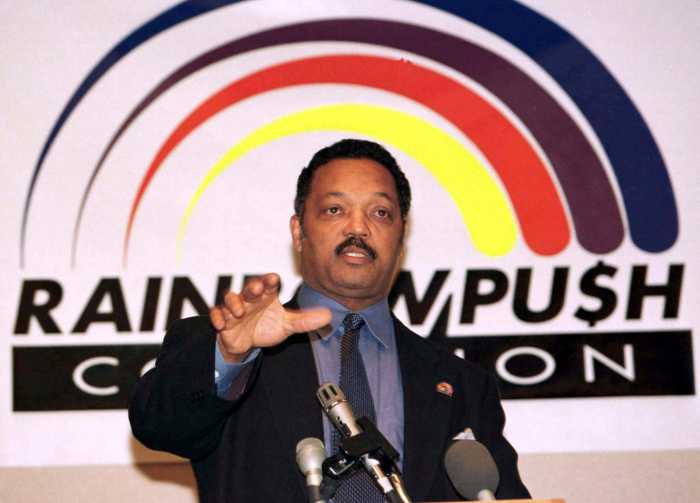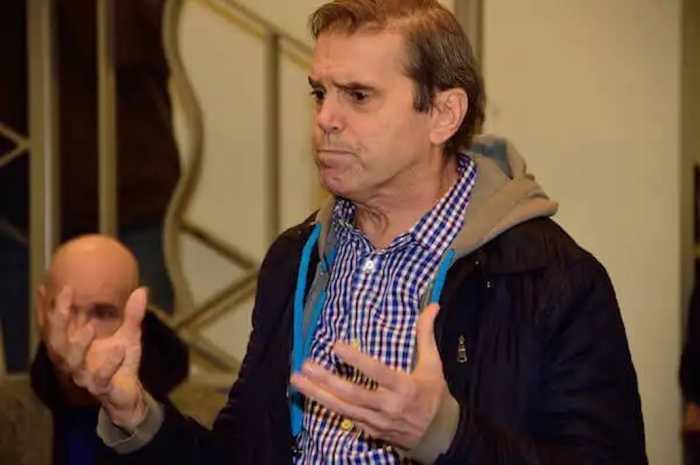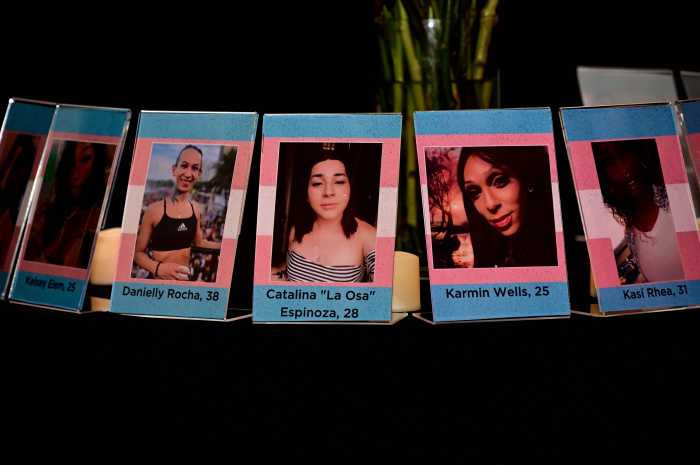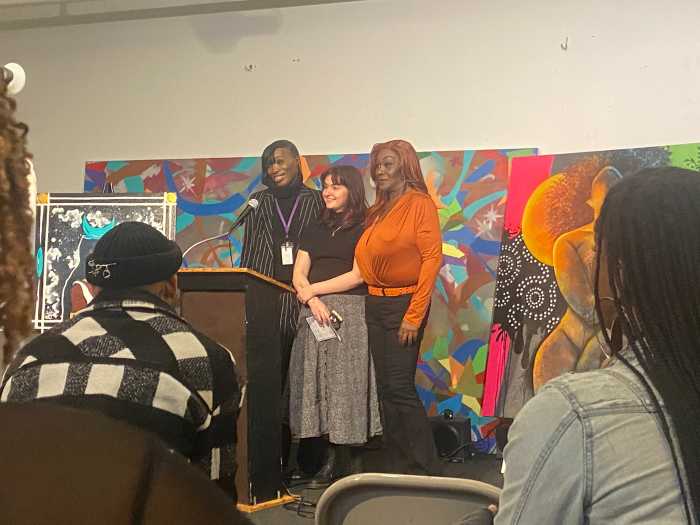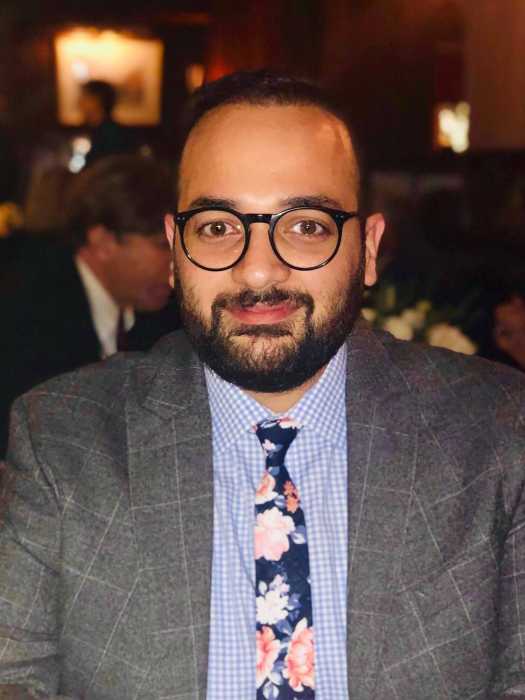Tony Award-winning composer William Finn, who died on April 7 at age 73, brought bracingly honest gay themes and characters to the New York stage — as well as humor and memorable songs — just a decade after Stonewall with the groundbreaking musicals “In Trousers” (1979) and “March of the Falsettos” (1981).
His 1990 “Falsettoland,” the third work in his trilogy, poignantly looked at how AIDS affected his characters in the early years of the pandemic. In 1992, the latter two shows were combined into a Tony-winning Broadway show, “Falsettos,” running for 486 performances before it was revived in 2016, garnering five Tony nominations.
Finn died in Bennington, Vermont from pulmonary fibrosis. He was survived by his partner of 45 years, Arthur Salvadore.
Tributes poured in across social media in the aftermath of Finn’s death. Director Scott Frankel, who later was the music director of “Falsettos’ on Broadway, wrote on Facebook, “I saw MARCH OF THE FALSETTOS at Playwrights Horizons in 1981 while I was still in high school. It kind of blew my mind. I hadn’t known such characters could exist in a stage musical. Out gay men. Brittle, complicated New Yorkers. Tight-knit families, with real problems. The music was angular and surprising and I was smitten.”
Brannon Wiles also posted on Facebook, writing, “‘Falsettos’ affected me deeply from the first time I heard it — living in San Francisco in 1991 & volunteering on the board of an AIDS organization, I had a front-row seat to what was depicted in the second act after not really knowing but one or two gay people who were out in high school or college. But it also transcended AIDS & homosexuality for me — at a time when my parents divorced & I struggled to understand, this group of quirky & amazing characters gathered around Whizzer taught me the concept of ‘chosen family’ before that was a term. Deeply flawed Marvin singing everything I ached to hear from my own dad in ‘Father To Son.’ It quickly became (and has remained) one of my favorite musicals of all time.”
Fifteen years later, Wiles got to work with Finn as general manager of Finn’s “Make Me a Song” revue at New World Stages.
Andrew Taines, a veteran gay New York theater-goer, told Gay City News that when he first watched ‘March of the Falsettos’ in 1981, he found it “intriguingly different, quirky, and a little bit hard to grasp.”
“When ‘Falsettoland’ came along in 1990, I couldn’t help but be incredibly moved by this portrayal of Marvin and his ‘chosen family’ in the midst of the AIDS crisis,” Taine said. “When the two one-act musicals were put together in 1992 on Broadway as ‘Falsettos,’ they melded perfectly, telling the story of Marvin and his loves and losses. I have seen the show several times, including an all-Asian cast performing ‘Falsettoland,’ which worked just fine because the humanity is all there in the work. Mr. Finn’s work was always quirky and unusual, but full of heart and compassion. Or, as the song in [Finn’s] ’A New Brain’ goes, ‘Ya gotta have heart and music.’”
Julie Halston, a veteran of many Charles Busch productions as well as Broadway shows (and herself a Tony winner for her humanitarian work), wrote on Facebook, “William Finn was brilliant. His work thrilled me and gutted me all at the same time,” an apt description of shows that both surprised and delighted while integrating themes of deep love and loss.
Playwright Paul Rudnick wrote on Facebook, “Bill had the look, and sometimes the volume, of a thundering biblical prophet, of Moses calling for the check. This was deceptive, as he was the most generous, warm, and passionate person… Bill was gleefully honest; when I’d ask his opinion of a less-than-noteworthy production, he’d shout, ‘It was TERRIBLE!’ Only Bill could make even rage somehow delightful.”
Indeed, Finn never pulled his punches — even about himself. In accepting the Tony Award for Best Original Score for “Falsettos” in 1992, Finn said, “I have a wonderful family, wonderful friends, I love everyone in this audience — and I’m a miserable person!” (He also said that “Barry and Fran Weissler were the only two producers stupid enough to do the show and the only two smart enough to make it work.” He had a unique way with words — and reduced that audience he loved to helpless laughter.) He also won the Tony for Best Book of a Musical for it.
Finn’s musical “A New Brain” (1998) grew out of his experience with arteriovenous malformation (AVM) — an abnormal connection between arteries and veins — leaving him with blurred vision and dizziness. He survived an operation for it in 1992.
He had a big Broadway commercial and artistic success with “The 25th Annual Putnam County Spelling Bee” in 2005 after it was developed by the Barrington Stage Company and enjoyed a successful off-Broadway run at Second Stage Theatre. It garnered six Tony nominations and won two. It ran at the Circle in the Square for 1,136 performances and 21 previews.
“Spelling Bee” is revived frequently all over the world — including a long run at the Drury Lane in London’s West End. It is also very popular in high schools and colleges. In 2023 it was deemed too “vulgar” by an Ohio school district, though school authorities insisted it was not being canceled because one of the kids in the bee has gay parents. After protests — including from Jesse Tyler Ferguson, who was in the original Broadway cast — Cardinal High School went ahead with an authorized “revised” version of the show.
“Bill was more than a genius composer and lyricist — he was a force of nature,” Charlie Siedenburg, a spokesperson for Barrington Stage Company, wrote on Facebook. “His passion, wit, and unfiltered honesty made him utterly unique, and his music will forever live in the hearts of those who love the theatre. At Barrington Stage, his legacy is woven into our very fabric — from the unforgettable world premiere of ‘Spelling Bee’ to the creation of the Musical Theatre Lab, nurturing new works and emerging voices that he championed so fiercely. To know Bill was to experience someone who was deeply human — bold, vulnerable, fiercely intelligent, and deeply loyal to those he cared for. I will miss his spirit, his humor, and his extraordinary gift for turning life’s most complex emotions into unforgettable song.”
William Finn was born in Boston on February 28, 1952 into conservative Judaism. He wrote his first play in Hebrew school and said, according to Tablet, “I don’t think I ever told anyone this: The first play I ever wrote was in Hebrew. I have no idea what it was about. But it was horrible, I guarantee it. I couldn’t write plays, and I couldn’t really speak Hebrew, so how good could it be?” But he got a guitar at his bar mitzvah and went on to major in music at Williams College. The rest is musical theater history.
Rabbi Sharon Kleinbaum, who performed at the Williamstown, Massachusetts funeral for Finn — a member of Congregation Beit Simchat Torah, New York’s LGBTQ synagogue — wrote in an email, “No one had a bigger heart or greater talent than William Finn. He was so deeply loving, grumpy, compassionate, smart, hilarious, and generous in the Bill Finn way.”
A public memorial service will be held at a future date.

